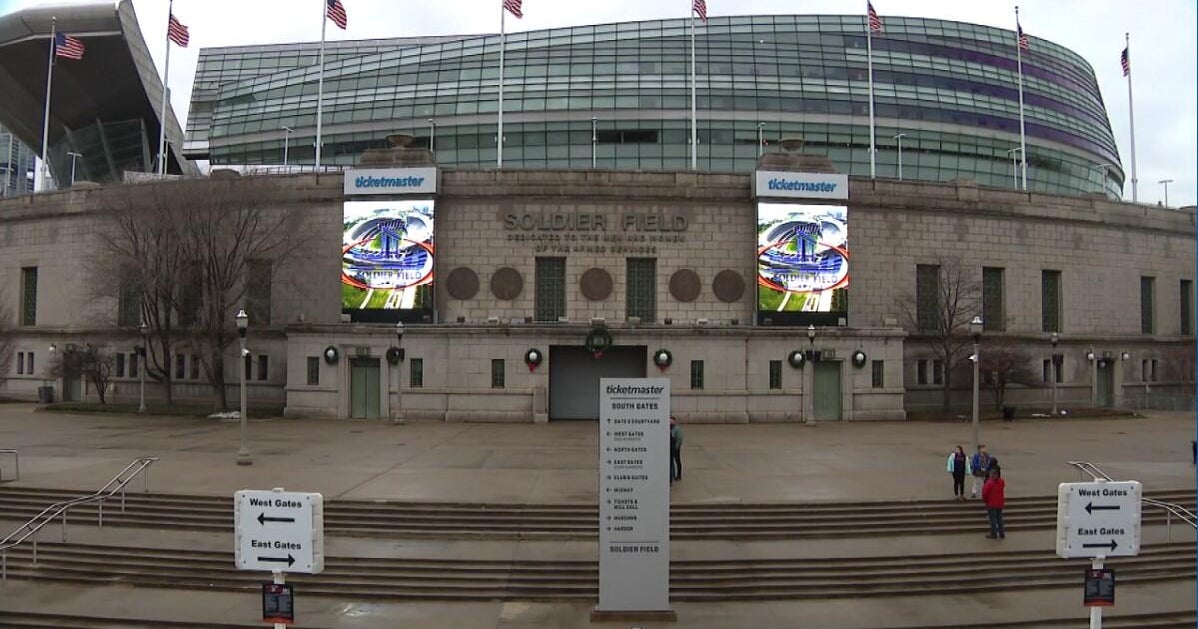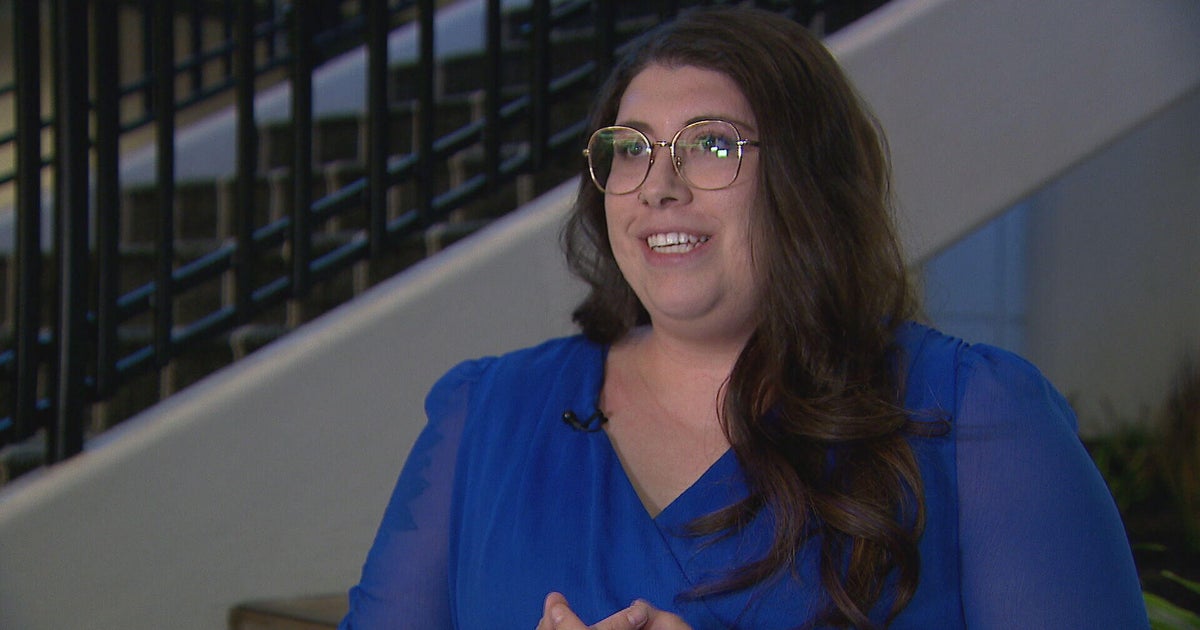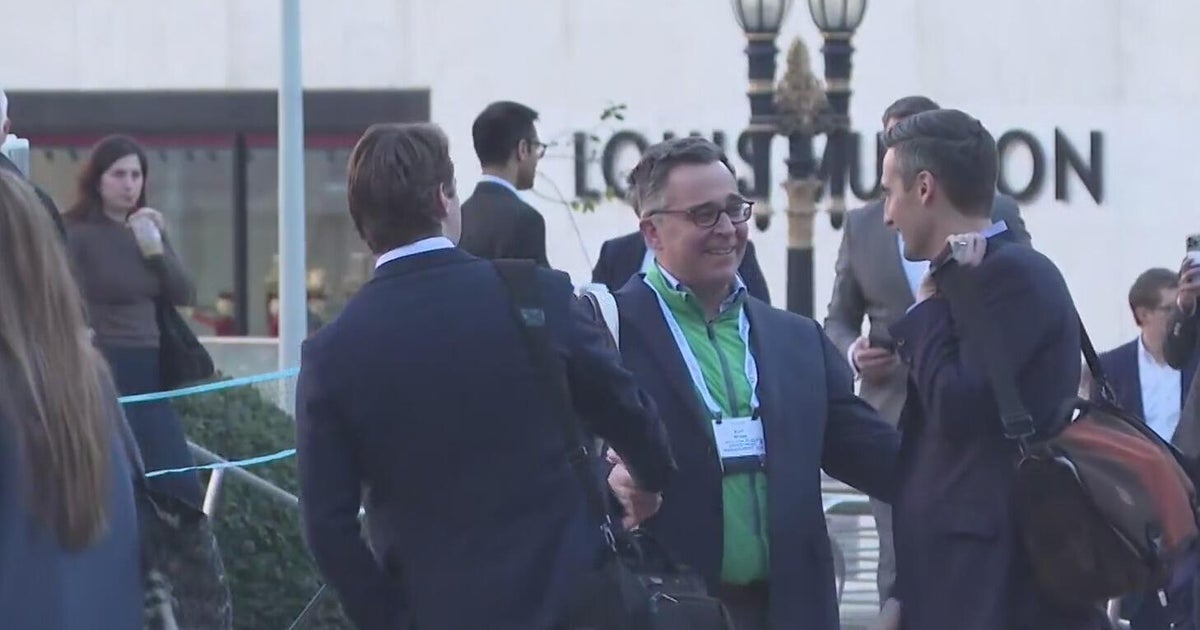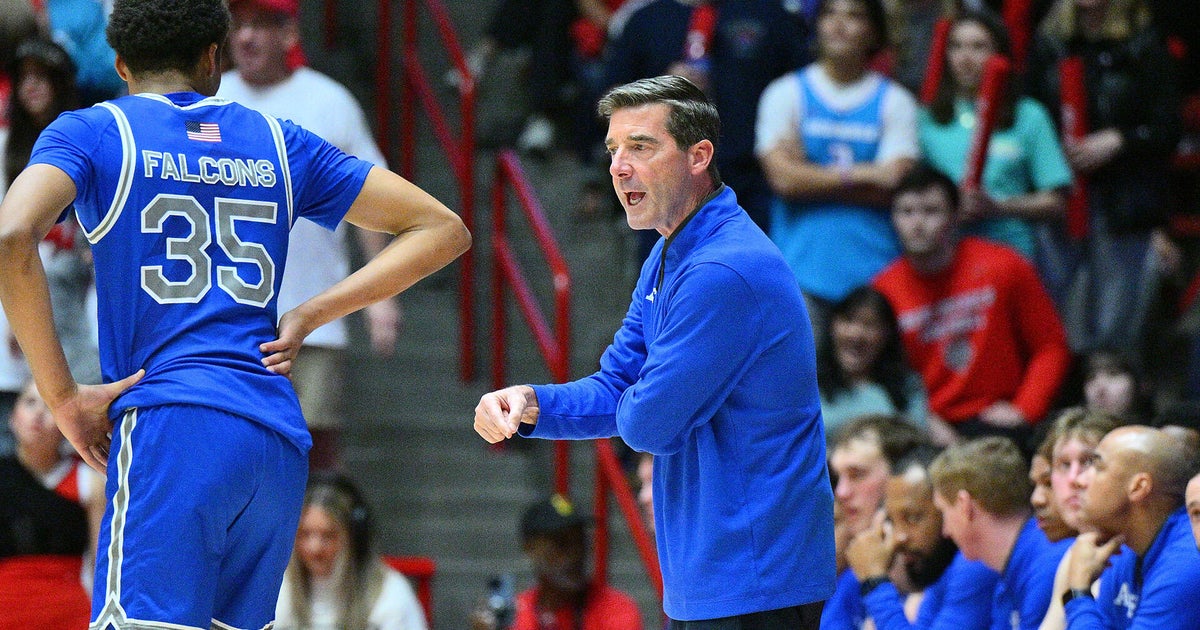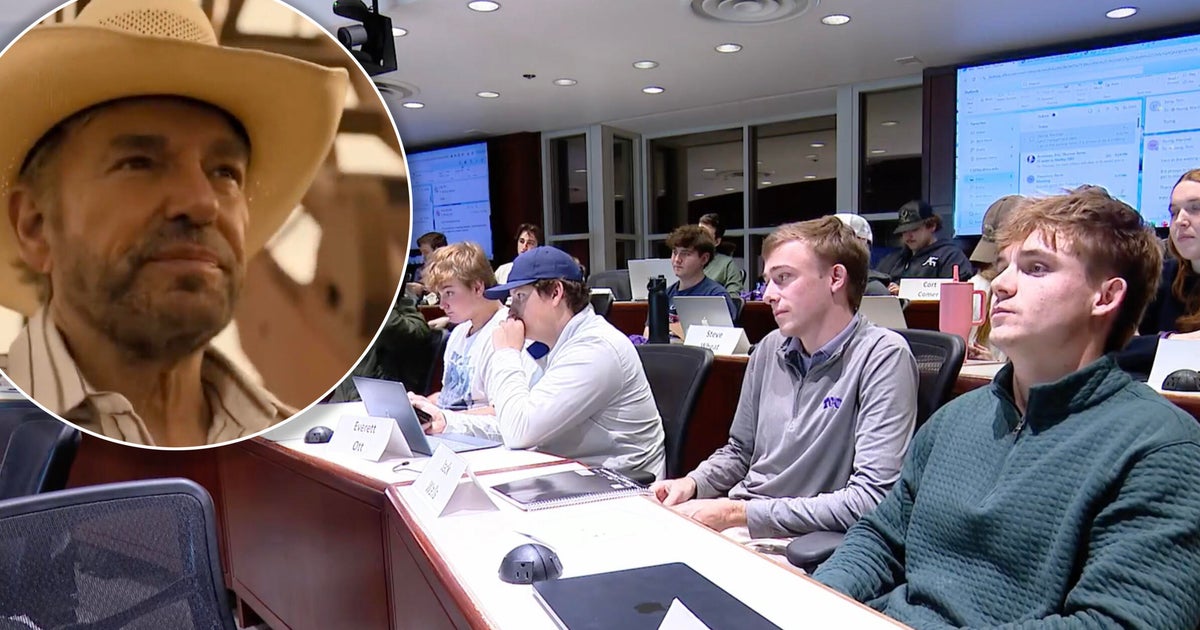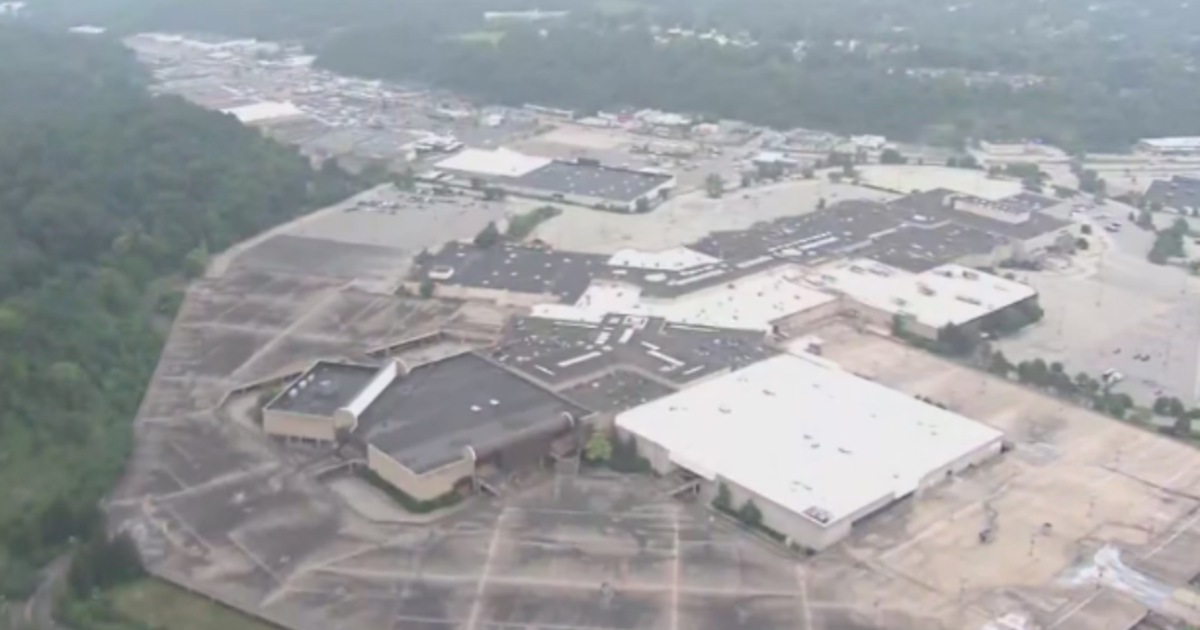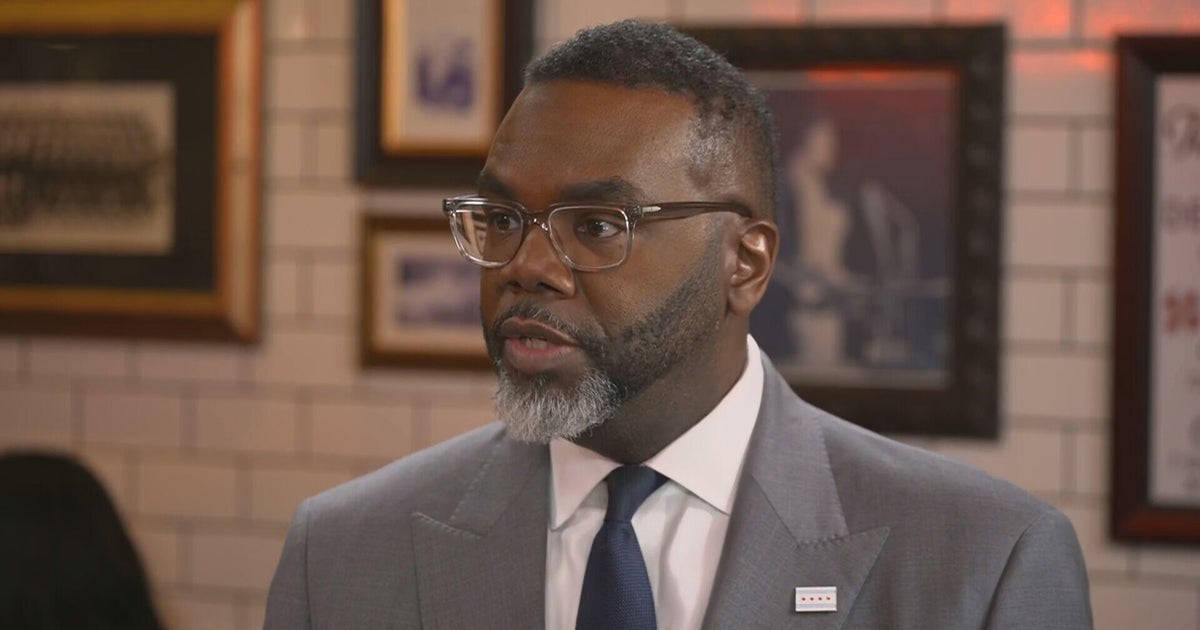CBS SF talks to desert-rock legend Mario Lalli
An important player with several pioneering bands in the same Palm Desert scene that produced Kyuss, Mario Lalli has been making his unique and influential style of music since he was in his teens during the 1980s. Lalli got his start as a guitarist and singer playing in his high school punk band Dead Issue with bassist Scott Reeder (later of the Obsessed and Kyuss), drummer Alfredo Hernandez (future Kyuss and Queens of the Stone Age drummer) and guitarist Herb Lineau. The group would change its name to Darkside (which would contribute the song to the soundtrack of the low-budget punk film Desperate Teenage Love Dolls in 1984) prior to Lineau's departure.
Lalli, Reeder and Hernandez would continue as a trio under the name Across the River, crafting a punk-informed style of hard-grooving riff rock heavily indebted to the sounds of their '70s heroes like Mountain, Jimi Hendrix and Black Sabbath. Guitarist Mark Anderson expanded band to a quartet and the members relocated to Los Angeles to pursue their dreams of breaking into the music business.
Across the River would settle in Culver City and connect with a number of like-minded outfits on Greg Ginn's SST Records, but after a year of playing shows in Los Angeles, Across the River disbanded and the musicians returned to their desert home. Lalli and his cousin Larry Lalli would team with Hernandez for the short-lived band Inglenook, which would eventually morph into Yawning Man with the addition of guitarist Gary Arce. With Mario Lalli switching to bass, the crew would explore a dark, largely instrumental psychedelic sound that touched on surf rock.
Yawning Man became a staple of the infamous underground generator parties held in remote parts of the desert, playing extended psychedelic jams that helped shape the minds of then teenagers Josh Homme, Brant Bjork and John Garcia prior to the formation of Kyuss. The band would record a version of the Across the River tune "N.O." on their 1994 album Welcome to Sky Valley after Reeder (who joined in 1992) and Hernandez (who took over on drums in 1994) were brought into the fold.
While the group wouldn't end up recording a proper album until they reunited during the 2000s -- though the same players would eventually issue several more jazz-minded efforts under the moniker the Sort of Quartet for SST -- Lalli would shift his focus to his long-running group Fatso Jetson in 1994 when he and his cousin joined forces with drummer Tony Tornay. Mixing elements of heavy rock, surf and psychedelia, the trio would be signed to Greg Ginn's SST Records, which released its first album Stinky Little Gods in 1995.
Mario would also spend time as an auxiliary member of Queens of the Stone Age and contribute to Homme's Desert Sessions recordings, Fatso Jetson toured and recorded regularly through the rest of the decade for a number of labels, including Man's Ruin, Bong Load Records and Homme's Rekords Records.
The band has continued to produce vital new music into the modern era, currently playing in an expanded line-up that includes Mario's son Dino Von Lalli on second guitar. Fatso Jetson released its most recent effort Idle Hands on noted hard-rock imprint Heavy Psych Sounds in 2016. More recently Yawning Man issued its fifth studio album Macedonian Lines, another collection of the group's expansive surf-tinged psychedelia, for the HPS label last June. Lalli was scheduled to perform with both Fatso Jetson and Yawning Man at the inaugural Heavy Psych Sounds Festival in San Francisco in the spring of 2019, but a scheduling conflict forced the groups to miss the dates.
Lalli was set to appear with Yawning Man at the second edition of the two-day festival at the end of March with Earthless, Danava, Brant Bjork and Hot Lunch among others at the Rickshaw Stop and the Bottom of the Hill, but unfortunately the widespread restrictions on public gatherings in San Francisco due to the coronavirus have forced the Heavy Psych Sounds Fest to be postponed. CBS SF spoke with Lalli prior to the festival being derailed by the global health crisis, discussing his career with Across the River, Yawning Man and Fatso Jetson as well as taking a deep dive into the history of the desert rock scene.
CBS SF: I wanted to start with a couple of questions about Across the River. I came across the YouTube clip of you explaining how to play "N.O." -- the tune that Kyuss ended up covering on Welcome to Sky Valley. I was wondering if there were any other Across the River songs that you revisited either with Yawning Man or Fatso Jetson?
Mario Lalli: No. Never. I haven't played any of that music since 1985. Onstage when Kyuss Lives was playing at the Wiltern Theater in LA, me and my son got up and joined them playing "N.O." in 2011. That was the first time I had played that song live in, I don't know, 30 something years. That was when Kyuss Lives was doing their big tour of the States, and they played the Wiltern, they invited us to get up there and play that song with them.
So that was kind of cool. Me and my son got to get up and do that. That was awesome. But yeah, it's weird; we were gifted a really great live recording. We used to be kind of closely affiliated with all the SST guys. And when I first moved from the desert -- I graduated high school in '84 and that summer I moved to Culver City in Los Angeles -- and the first people that I'd befriended there were Jeff and Steve McDonald from Redd Kross and Dave Markey. He's a filmmaker who documented a lot of the L.A. music scene. He used a lot of the musicians from that music scene, from the South Bay there in his films. I became friendly with him in the desert in the early eighties playing punk shows with his band, SIN 34.
And so when I moved up there with Scott Reeder and Alfredo Hernandez, we moved up there to try and make music happen and start playing clubs and stuff and, you know, get serious about playing. At the time, Markey was in a band called Painted Willy and they were on SST. We started rehearsing at SST Records in Lawndale in their practice room. Between that experience and playing up at Phil Newman's studio -- Phil Newman was the bass player in Painted Willy and SIN 34 -- and he had a recording studio in North Hollywood.
He was documenting a lot of the SST Fests, they were called. What it was usually you'd have like, six or seven SST bands all performing at the same venue or the same party or the same outdoor space or whatever. And we started gigging a lot with bands like DC3, Dez Candena's band, and Saint Vitus. We never did any shows with Black Flag, but we just kind of fell into that scene, which was awesome for us because it was a huge, huge influence. I know we were greatly inspired by all that music, all the bands on SST.
So Chuck Dukowski had invited us to be part of this SST Fest at the Malibu County Line Beach. It was actually on private property on the beach. It was a generator party that was fIREHOSE's first show on the West Coast, and Sacharrine Trust played and the band Lawndale and Painted Willy and Across the River opened the show.
The whole performance was captured on a half-inch reel-to-reel tape. It was like an eight-track recording. We signed a contract with SST and it was supposed to come out as a live record featuring all these bands, but it never came to fruition. So when Phil Newman unfortunately passed away -- he actually passed away on my birthday years ago. He had a kind of a tragic accident; slipped on a boat and hit his head and passed away. And he had all these archival recordings that were left to Dave Markey to do whatever with: to preserve or release or whatever.
And they had a sort of a record label magazine called We Got Power. It was a underground fanzine and was always featuring most of these loosely affiliated bands from that L.A. scene and L.A. beach communities like Santa Monica, Hermosa Beach and Manhattan Beach and he recorded our set. When Phil passed away, Dave gave me the tapes. And I took them and got them baked so they could be transferred to digital files, because the tapes were, you know, 30-plus years old. I think it was 1985 that we played that show?
Anyway, so Scott put them in his studio and did a little work on them and we had plans at the time -- and I still do have a plan -- to have them released in some format or other, either digitally or vinyl. But everybody got busy with life and it kind of got shelved. But we're working on something like that because of the renewed interest in the history of the band and the members being part of this stoner rock movement, if you want to call it that; however you want to call it with Scott Reader and Alfredo being in Kyuss and Alfredo being in the Queens and all that stuff.
There was a lot of people like you looking back and finding the music. We never did anything. We played a lot. We played a lot around here and we played some great shows in LA and we played some of the last days at the Mabuhay Gardens up in your neck of the woods.
CBS SF: Right! I'd heard that and was going to ask about it....
Mario Lalli: We didn't do much, you know? And so I was really excited to release some of that music finally. But it's still sitting there, so we'll see what happens. But that's really the only attention I've paid to it. Over the years, we've talked about how cool it would be for us to get together and play some music again, but everybody's doing their own thing and the sails never caught any wind, so we kinda let it be
Right. I was able to find a little bit of what's online, like the demo and there are a few videos of you playing live, some of which I'd seen in documentaries about the scene in the desert. So I was familiar from that. Do you look at the demo as something that would even be worth trying to salvage to put out, or was that just too raw? Or maybe it would be less representative than it sounds like this live recording you have would be of the band...
Yeah, the live recording, when I listened to it, I'm like, "Ugghhhh!" The performance on my part wasn't so great. And so I'm like, "Yeeesh!" But it definitely had some spontaneous fire and the jams are pretty cool. Live we were way different than when when we did our little garage recordings. And you know, those cassette recordings, I don't even know. I think my cousin was the kind of archival guy. He's the one that had the sock drawer full of cassette tapes from the garage and he kind of took care of stuff more than anybody else in the band. And Scott was really good at hanging on to things and preserving things and organizing and not losing them.
Me, I have boxes of unmarked cassette tapes from my Teac multitracker. There's all kinds of great stuff in there. I still have the multitracker too. But trying to track down that master tape or even a good mix of it? I don't know. Liked that one that got uploaded onto YouTube, I think maybe Scott might have done that. I'm not sure. But I haven't even started to think about how to find a good copy that was worth salvaging. It's probably something we should do because it's got some sort of relevance and significance and we're proud of the music. It definitely changed the course of how we thought about music and were playing.
I mean, we were like a hardcore punk band before diving into that batch of music. So it totally signified like a huge shift in the way we wrote music and processed our influences and things like that, you know? It would be a good thing to revisit. I just haven't talked to either of those guys in months and months. It's just kind of comes up and I think about it.
The people behind Psycho Las Vegas, a couple of years ago, offered us a exclusive performance if we would pull it together to do it. But at the time, everybody was doing their own stuff, it's new and exciting and fresh. And it was like, "You know, that happened and it was rad, but just let it be." But I don't mind that. I don't mind revisiting things that had something special about, especially those guys who are some of my best friends. That would be rad to play music with them again someday. And revisiting that to see what came of it would be interesting for sure.
CBS SF: I would love a chance to see Alfredo play again. I saw him during the latter era of Kyuss and then with the early line-up of Queens of the Stone Age. Actually, some of those shows included either you and Dave Catching as the auxiliary members of Queens, playing second guitar or lap steel on those early tours. But Alfredo was one of my favorite drummers and such a powerhouse. I would go see him do anything, but an Across the River show would be even better. You already touched on it, but I was going to ask more details about the band playing at the Mab. Do you have any recollections about your time in San Francisco or who you played with?
Mario Lalli: Oh yeah, we played with local bands. It was a local band bill, all ages show. I can't remember any of the bands that we played with because they were really truly just like garage band. It was something we booked on our own with no connection to any music scene people or anything. So it was just kind of a random show. We were stoked to play that place. It already had such a history in the punk scene that we were just excited to be able to play there. We drove my big old van up there and I remember the transmission was slipping. We had that thing full of all our big f--king eight by ten cab;, you know, two four by twelve cabs. It was like fully loaded plus five people and we're going up those f--king hills. It was crazy.
I remember one thing that happened; the band before us were these kids and all their parents were there. And they were so f--king excited. These kids were so excited, so fired up and ready to put on a big show. We were standing there, watching them play their first song. They were kind of a metal band and young, young kids. I mean 16, 17 years old. S--t, I was only 18 or 19 at the time probably. I wasn't even drinking age yet. But we're standing there on the side of the stage [laughs] and they start their first song and the bass player starts the typical kind of like punk/metal bass intro and the drummer starts to build up.
And I could see the guitar player is like at the side of the stage, and I'm like, what's he going to do? He looked like he was getting ready to start a race. Like he was perched, ready to pounce, you know? And I kind of figured he's probably gonna take a running leap and hit his knees, do some crazy, big, fabulous intro. He's standing behind the front of house speaker and the build up is going and building up and building up.
And there he goes! He takes off and he jumps up and comes down on the stage and his knee completely comes out of the socket. Completely disjointed. His knee cap was turned sideways and he hit the f--king floor and his guitar just clanged -- kerrang! -- and he started screaming at the top of his lungs. For obvious reasons -- I mean, his f--king kneecap was literally turned, you know, 90 degrees. He's down and the band is trying to figure out, "What the fuck do we do?" There's no guitar. The guy's on the ground screaming, but they don't stop! They're looking at him like, "What do we do? What do we do?"
And they keep playing and the guy's mom comes up. And she's holding him like a wounded soldier and his guitar is feeding back. And it was just like, oh my God. It was so f--ked. It was so sad. It kind of like the song just kind of plodded to an end. And then obviously he had to be taken to the ER and their set was done, you know? But that was our experience at the Mabuhay.
But I do remember a really great show is happening right behind us. And I can't remember the name of the venue, but they were right close to each other in the same North Beach neighborhood. We were kind of sharing the parking lot. So Samhain was playing and St. Vitas was opening. I was walking around the neighborhood in front of some of the porno places or whatever right there and [St. Vitus guitarist] Dave Chandler was walking up the street. "Hey! F--k dude, what's going on, man? I'm a big fan!"
And that's the way I met him. That was the first time and that was the way he ended up playing with him. We played with Saint Vitus a bunch. I brought them down to the desert and we played with them in LA several times at the Anti Club. So it was an eventful trip.
I remember we stayed in Berkeley because we wanted and to go up Telegraph and go record shopping or whenever. I also ended up with a guitar and a bass that were dear, dear, dear to me for years and years. And I still have the acoustic guitar. I bought it at Subway Guitars. You remember that place? So I got that on that trip. And we went to some park -- I can't remember the name of the park -- but we were trying to score some pot.
CBS SF: It was probably People's Park if you were in Berkeley. That was the place you'd go in the '80s to get some weed...
Mario Lalli: So we went and it was dark and there was a couple of dudes sitting on a bench. And we're like, "Hey man, you know were to get some weed?" And they're like, "Yeah, man, we got this Thai stick!' And we're like, "Whoa, Thai stick? F--k! Awesome." And they sold us the s--t. And it was f--king tea rolled in glue on a barbecue skewer, you know? We got back to the hotel, whatever the crummy hotel we were staying at, and we busted open and it was like, "This is f--king tea. Actual tea that you drink." But we were just stoked to play that club. That band got to play a couple of really classic shows.
The Mentors used to have a Monday residency at the Cathay de Grande in LA and that was our first show out of out of the desert in a real club. Opening for the Mentors. Stuff like that doesn't seem important to people, but it's like, to me it was like, "Whoa!" It was a big deal for us goofballs from the desert too be playing all these f--king hardcore rock and rollers. It was pretty cool. And that band had legs, man. It's too bad.
We were disillusioned with Los Angeles and we didn't know how to get out and take the demo tape around. It was way pre-social media and emailing and all that s--t. You had to get out and f--king go face to face with people or know somebody or whatever. So other than the cool s--t we got to do there with SST, we just couldn't seem to get anything else going. We were partying too much and not focused. But whenever we played, we always got an incredible response, you know? People were always like, "F--k, this is...f--king wow, man!"
And because we're playing mostly punk shows and bands, like the SST bands especially, were getting heavier. I'm more influenced by...I guess you'd call it classic rock. But with like Dez Cadena's band DC3 and playing with Vitus and bands like that, there was a kind of a metal/punk rock crossover thing going on with Anthrax and D.R.I. and s--t like that. But the heavier, groovy staff that we were playing, we were just kind of revisiting our record collections of Mountain and Black Oak Arkansas and Black Sabbath and Jimi Hendrix and Frank Marino.
All that s--t that we were listening to as kids and we'd kind of figured out how to play. So it was like, "Wow, we can actually kind of play this stuff that really f--king got us fired up about rock music." So I think it could have been a good run if we'd stuck it out and been more creative and just focused on writing music and not so much on party time.
But eventually we all moved back [to the desert]. We all lived together in an apartment in Culver City for about two years. And I was trying to go to college and Scott was actually a music major at UCLA playing trombone. He was in the marching band. He played the Olympics ceremonies there in LA. He's an incredible musician; just very, very talented. And we convinced him to f--king ditch school and come and do our rock and roll thing. And then I dragged them back to the desert and with the money I was supposed to be using for college, I got us a house in La Quinta and we converted the garage into a studio space. And we just of stayed here and that's when we did a bunch of the generator party staff. That's when all that s--t happened. That house turned out to be really kind of significant, because that's where Yawning Man came together after Across the River kind of disbanded.
